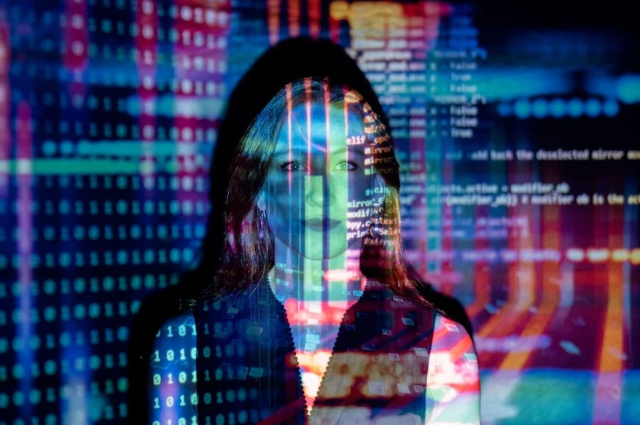
The history is ever a reflection of the time in which it is being written. History used to be one written by kings, scholars, or historians. It was recorded in tomes, on stone tablets, and passed down orally for a go. However, with the future soon approaching, it raises the question of how history shall be written for posterity-the tools which the future, generations of posterity, would utilize for transcribing our epoch? Are they going to settle for the same things as we do or will technology, social media, and AI couch it all in a different version?
This article refers to how history is being recorded at present and how history writing can still change considerably in the future. If technology, artificial intelligence, and social media play a part in it, will collective memory swell? There will be an exploration of the challenges and ethical dilemmas involved in how we record history pitfalls of the digital age.
Evolution of History: From Stone Tablets to Smartphones
In ancient days, history was a preserve of only a few elite mortals who had the luxury of safeguarding it. Ancient civilization recorded its history on stone tablets or scrolls; hence it was the privilege of only a few learned to gain access to these chronicles. Today, history is written, probably better, in the form of books, newspapers, and printed material. A contemporary history is far removed from that style of writing.
With the rise of the digital age, everyone seems thus able, at will, to produce and even share information. In this age of mobile phones in our pockets, we can capture moments-political rallies, public dialogues, marriages, or even the birth of a child. While creating and disseminating information about personal experiences is much individualistic in nature, various social network sites such as Twitter, Instagram, and Facebook allow one to share his/her experiences almost synchronously. Whether tweets, pictures, or videos, we seem to be constantly documenting our lives. In this way, we're all historians.
This brings us to the point that history is not written by a few anymore. Today, we are in an era where people, in real time, are writing history. The input we contribute on the Web will serve as the historical record for the impending generations. But, how will future generations accent this data we are consistently generating?
The Role of Technology: AI, Big Data, and Virtual Reality

Modern technologies continue to evolve and will potentially place future generations on a complete different footing in documenting history and understanding it. The greatest shift will probably emerge from the ongoing rise of AI. AI has started gathering and analyzing historical data and it is probably going to become an even more important force in history.
AI has an ability in treating enormous data sets quickly. In all future prospects, AI might be able to sift through millions of social media posts, news articles, and videos to create a record of events. In looking retrospectively at something like the COVID-19 pandemic, an AI system could have analyzed news reports, social media posts, and government data to record the spread of the virus, government responses, and eventual impact on society.
AI raises the crucial question, however: Can AI really consume and digest the complexities of human experience? History does not simply consist of facts and figures; it constitutes the understanding of the emotions, motivations, and struggles of human beings. Sure, AI can treat the data, but sheer comprehension of the human condition is beyond its grasp. So, where AI will quite probably procure a record of what occurred, the human historian will offer greater context and interpretive significance to that.\n
Another technology potentially set to reinvent the way history could be written is virtual reality. Imagine a future where you walk into history through VR. Instead of reading about the moon landing, one might experience the events alongside Neil Armstrong as he takes his first step on the moon's surface. VR offers a more immersive and interactive means for the future generations to experience history.
The Influence of Social Media and Crowd-Sourced History
Social media is yet another of the many forces that will affect the future of history, alongside AI and VR. With applications such as Twitter, Facebook, and Instagram, the dissemination of experiences and perspectives became an activity that could now be conducted live by individuals. In short, history is not forever shaped on one side by an ever-narrowing, powerful enclave of few individuals or institutions. Instead putting the narrative in millions of hands all over the world.
Many examples illustrate how social media has massively transformed event self-documentation, with the Arab Spring as one prominent example-a large series of protests and uprisings planned and reported primarily through social media. The sharing of pictures, videos, and updates with the whole world from the ground allowed the world to play witness to things happening in real-time and gave a voice to people who would normally have gone unnoticed by mainstream media.
One can see the writing of history of the future as dedicated for the people by the people, with future generations maybe relying on social media and other digital platforms to make sense of what happened, instead of historians. So it would be an all-encompassing purview-a kaleidoscope of voices articulating perspectives giving the environment a diversity of reflection.
And that shift raises troubling questions: How should we be assured that history behind walls is accurate or fair? With the advent of misinformation and fake news, how can we trust the content we see online? That actually sets up a complex address in inherent drift of social media in which there is no central authority that should lend itself any weight to the contributions made to clauses in history, so not every contribution is trustworthy.
Ethical Issues: Accuracy, Privacy, and Bias
We move forward in terms of the digital history, with a number of ethical dilemmas. One is, of course, accuracy in the information we are sharing. In the coming of fake news and misinformation, it’s terribly difficult to separate fact from fiction. So again in future, how would historians tell truth from lies? Will they rely on AI to fact-check everything that they write about, or will they still plead human judgment in everything?
Another ethical issue is privacy. Our lives are becoming more and more public because of the Internet, while our personal data get stored and catalogued by indefinite institutions. So later generations will have access to every tweet we’ve posted, every picture shared, and every place visited. The combination of raised questions about consent and the right to privacy comes to the foreground in this. Should we allow future generations to have access to our personal data or to have the limits on what could have been recorded and shared?
The last is that of bias. The same way characterized history, being very often written from the powerful's perspective; the digital age might simply amplify some voices while shutting up others. To ensure that history is written from several perspectives should be the objective of the next generations and that, indeed, marginalized voices are never excluded from the writing.
The Future of Historians: Human or Machine?
The historian's role is dynamic and might not remain unchanged; presently, historians are interpreters of the past and give it context. With rapid technological advancement, it is possible that most of the work within historical research might be taken over by AI, which can analyze data, recognize patterns, and compose historical records all by itself.
But even if AI would be capable of organizing and presenting the data, it lacks understanding the human experience. History never is presented on the bases of ones and zeros: it's about emotions, strife, and triumphs in people's lives. Hence, human historians would remain most valuable in those days. Future historians might well find themselves working on issues with AI beside them: using technological prowess to complement their own work even as human insight remains theirs alone to bring.
Conclusion: An Era of History-Telling
With the gaze upon the future, the shift in the manner of history writing is commendably clear. With the advancement of technology, AI, and social media, there will be a paradigm change in the presentation of history as well as its interpretation. History will no longer be left in the hands of a few historians or powerful people but rather it will be a shared venture among millions of voices within the distant world.
But with the new era of history-telling comes new challenges. We will need to ensure that history will be written accurately, inclusively, and justly. We will need to wrestle with ethical issues involving privacy, bias, and misinformation. And we will need to explore how to reconcile AI intelligence and human historians' views.
It may be uncertain what kind of history writing will witness the future, but one thing is clear: the story will be spoken by us all.
